The idea of turning your home into a money-making venture on Airbnb is undeniably tempting. The platform has transformed how we think about travel and accommodation, offering homeowners the chance to earn extra income while sharing their space. But before you start welcoming guests with open arms, there’s a less glamorous yet vital side to hosting: the legalities.
Failing to understand the legal requirements of listing your property on Airbnb can lead to hefty fines, strained relationships with neighbors, or even legal action. Fear not—this guide will walk you through the legal tips you need to consider before becoming an Airbnb host. Think of it as your travel guide to the legal landscape of short-term rentals.
Table of Contents
ToggleUnderstanding Local Regulations
Before you start sprucing up your property for photos, take the time to familiarize yourself with local laws governing short-term rentals. Airbnb’s policies might make hosting seem simple, but local governments often impose restrictions that could complicate things.
Some cities have caps on the number of nights you can rent out your property annually. Others may require you to register your listing, obtain a permit, or pay lodging taxes. Research is key—start by visiting your local council or government website for detailed guidelines. Regulations can vary widely depending on your location, so what works in Sydney might not apply in Seattle.
Do You Need a Permit?
In many cities, a permit is a non-negotiable requirement for listing a property on Airbnb. This permit usually certifies that your property meets safety standards and complies with zoning regulations. Depending on where you live, you might also need to apply for a business license.
The permitting process might sound tedious, but it’s often straightforward and ensures you’re on the right side of the law. Ignoring this step could result in fines or the suspension of your listing.
Taxes: More Than Just a Guest Fee
When hosting on Airbnb, taxes are a critical consideration. Short-term rentals are often subject to local lodging or occupancy taxes, which are added to your guest’s booking fee. While Airbnb may collect and remit these taxes in some locations, it’s not a universal service. Always confirm whether you’re responsible for lodging taxes and how to remit them.
But that’s not all—income earned through Airbnb is taxable. You’ll need to report your earnings to your national tax authority, whether it’s the IRS in the U.S. or the ATO in Australia. Keeping thorough records of your income and expenses is essential for accurate reporting and maximizing deductions.
Insurance: Protecting Yourself and Your Guests
The idea of welcoming strangers into your home might sound idyllic, but accidents can happen. That’s where insurance comes in. Standard homeowners or renters insurance may not cover short-term rentals, leaving you vulnerable in case of property damage, injuries, or liability claims.
Airbnb does provide some insurance coverage, including its Host Guarantee and Host Protection Insurance. However, these programs have limitations and shouldn’t be your sole safety net. Consult your insurance provider to ensure you have adequate coverage for your hosting activities.
Lease Agreements and Condo Rules
If you’re renting your property or living in a condo, hosting on Airbnb could breach your lease agreement or homeowners’ association (HOA) rules. Many rental agreements explicitly prohibit subleasing or short-term rentals, and violating these terms could result in eviction.
HOAs may also impose restrictions, often concerned about the impact of short-term rentals on the community. Before listing your property, review your lease or condo bylaws to ensure compliance. If necessary, seek written permission from your landlord or HOA.
Guest Screening and Safety Compliance
As a host, you’re responsible for the safety of your guests. Ensuring that your property meets safety standards isn’t just a legal obligation—it’s common sense. This includes:
- Functional smoke and carbon monoxide detectors
- Fire extinguishers placed in accessible locations
- Emergency exit plans clearly posted
Additionally, while Airbnb allows hosts to screen guests, it’s wise to take this responsibility seriously. Use tools like guest reviews and Airbnb’s ID verification system to vet potential guests. A little caution goes a long way in preventing unpleasant experiences.
Managing Neighbor Relations
Your neighbors might not share your enthusiasm for hosting travelers. Complaints about noise, parking, or increased foot traffic can sour your relationship with the community. To avoid conflicts:
- Inform your neighbors about your plans to host on Airbnb.
- Set clear house rules for guests, particularly around noise levels and parking.
- Regularly communicate with neighbors to address any concerns promptly.
Maintaining good neighborly relations isn’t just about courtesy—it could save your listing from disputes or official complaints.
Airbnb Management Melbourne service can help you grow your Airbnb. Get in touch to learn more.

Complying with Anti-Discrimination Laws
Airbnb hosts must adhere to anti-discrimination laws when selecting guests. Discrimination based on race, religion, nationality, gender, or other protected categories is illegal in most countries. Airbnb has strict policies against discrimination and expects hosts to provide equal opportunities for all travelers.
To comply, focus on creating an inclusive environment in your listing description and when communicating with potential guests. Treat everyone with respect and professionalism, regardless of their background.
Legal Assistance: When in Doubt, Ask an Expert
Navigating the legal maze of hosting can be overwhelming, especially if you’re new to short-term rentals. When in doubt, consult a legal professional who specializes in property or real estate law. They can provide personalized advice, ensuring you understand and meet your legal obligations as an Airbnb host.
Learn more about Airbnb Policies to stay informed.
FAQs: Legal Tips for Airbnb Hosts
Do I need a permit to list my property on Airbnb?
In many locations, a permit is required to ensure compliance with zoning laws and safety regulations. Check your local council's guidelines.
What taxes apply to Airbnb income?
Hosts are responsible for income taxes on Airbnb earnings and may also need to collect and remit local lodging taxes.
Does my homeowners insurance cover Airbnb rentals?
Standard insurance often excludes short-term rentals. Consider additional coverage or check Airbnb's Host Protection Insurance.
Can I host on Airbnb if I rent my property?
Check your lease agreement and obtain landlord permission if necessary. Hosting without approval could breach your lease.
What happens if I don’t comply with local Airbnb laws?
Non-compliance can result in fines, penalties, or the suspension of your Airbnb listing. Always follow local regulations.
